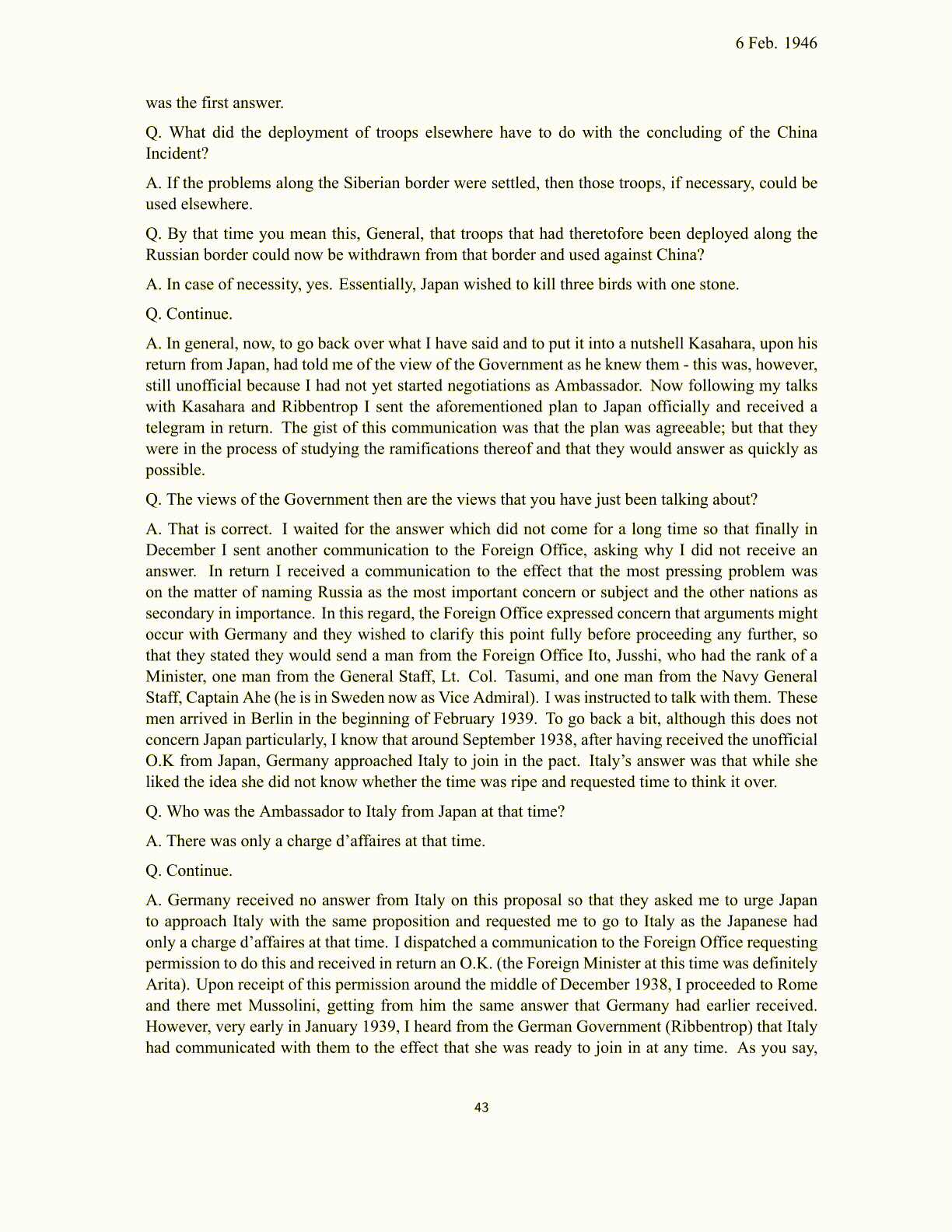
6 Feb. 1946 was the first answer. Q. What did the deployment of troops elsewhere have to do with the concluding of the China Incident? A. If the problems along the Siberian border were settled, then those troops, if necessary, could be used elsewhere. Q. By that time you mean this, General, that troops that had theretofore been deployed along the Russian border could now be withdrawn from that border and used against China? A. In case of necessity, yes. Essentially, Japan wished to kill three birds with one stone. Q. Continue. A. In general, now, to go back over what I have said and to put it into a nutshell Kasahara, upon his return from Japan, had told me of the view of the Government as he knew them - this was, however, still unofficial because I had not yet started negotiations as Ambassador. Now following my talks with Kasahara and Ribbentrop I sent the aforementioned plan to Japan officially and received a telegram in return. The gist of this communication was that the plan was agreeable; but that they were in the process of studying the ramifications thereof and that they would answer as quickly as possible. Q. The views of the Government then are the views that you have just been talking about? A. That is correct. I waited for the answer which did not come for a long time so that finally in December I sent another communication to the Foreign Office, asking why I did not receive an answer. In return I received a communication to the effect that the most pressing problem was on the matter of naming Russia as the most important concern or subject and the other nations as secondary in importance. In this regard, the Foreign Office expressed concern that arguments might occur with Germany and they wished to clarify this point fully before proceeding any further, so that they stated they would send a man from the Foreign Office Ito, Jusshi, who had the rank of a Minister, one man from the General Staff, Lt. Col. Tasumi, and one man from the Navy General Staff, Captain Ahe (he is in Sweden now as Vice Admiral). I was instructed to talk with them. These men arrived in Berlin in the beginning of February 1939. To go back a bit, although this does not concern Japan particularly, I know that around September 1938, after having received the unofficial O.K from Japan, Germany approached Italy to join in the pact. Italy’s answer was that while she liked the idea she did not know whether the time was ripe and requested time to think it over. Q. Who was the Ambassador to Italy from Japan at that time? A. There was only a charge d’affaires at that time. Q. Continue. A. Germany received no answer from Italy on this proposal so that they asked me to urge Japan to approach Italy with the same proposition and requested me to go to Italy as the Japanese had only a charge d’affaires at that time. I dispatched a communication to the Foreign Office requesting permission to do this and received in return an O.K. (the Foreign Minister at this time was definitely Arita). Upon receipt of this permission around the middle of December 1938, I proceeded to Rome and there met Mussolini, getting from him the same answer that Germany had earlier received. However, very early in January 1939, I heard from the German Government (Ribbentrop) that Italy had communicated with them to the effect that she was ready to join in at any time. As you say, 43